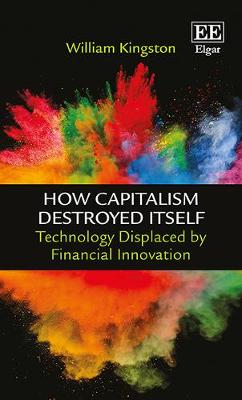Capitalism has been sustained by inherited moral values that are now all but exhausted. A unique combination of a new belief in individualism and a long tradition of property rights had traditionally ensured that self-interested action also produced public benefit. However, these rights, including the laws underwriting economic and financial innovation and parliamentary democracy, were gradually captured and shaped by those who could benefit most from them. This fascinating book shows that the outcome is a reduced ability to generate real wealth combined with exceptional inequality, as well as a worldwide breach of the vital trust between voters and their representatives. Capitalism's injuries are both self-inflicted and fatal.William Kingston uniquely deals with capitalism from a property rights standpoint, providing the first convincing explanation of economic cycles in terms of changes to these rights. The lucid exploration of the historical evolution of property includes a remarkable precursor of modern capitalism in medieval culture and pays particular attention to intellectual property. The book also calls attention to the harm that inaccurate measurement of economic activity can cause, both at the micro-level (auditing of corporations) and macro-level (the Kuznets GDP/GNP system). In conclusion, it argues that the exceptional levels of inequality today have been caused primarily by allowing financiers to escape from the laws that traditionally prevented them from 'generating money from nothing'.
Challenging the orthodox thinking, this is an essential book for economists and political scientists in academia, the public sector and industry. It offers an imperative warning that capitalism's next crash is coming sooner rather than later.
- ISBN10 1785367730
- ISBN13 9781785367731
- Publish Date 31 March 2017
- Publish Status Active
- Publish Country GB
- Imprint Edward Elgar Publishing Ltd
- Format Hardcover
- Pages 192
- Language English
